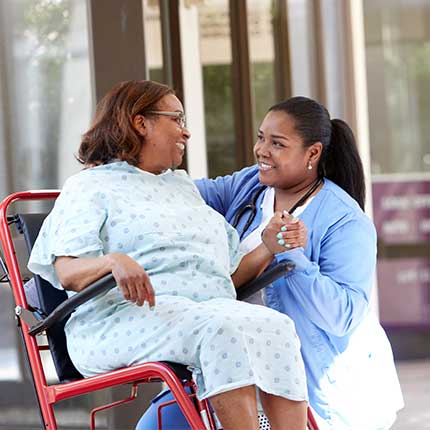Healthy Living: Obstetrics
What to Expect in Your Second Trimester
The second trimester, also called the fetal stage, happens from week 13 through week 26 (or the fourth to the sixth month) of your pregnancy. Many women find the second trimester much easier than the first in terms of physical symptoms, but it’s still vital to know what you can do to stay healthy for you and your growing baby.
Here’s a breakdown of what you can expect each month during your second trimester:
4th Month: Switching to Maternity Dresses or Yoga Pants
Welcome to second trimester! The baby’s hair continues to grow, and the same goes with their skin, skeletal system and muscles. Your baby could also start exploring their environment by making many movements with their arms, legs, hands, feet, head and mouth. They may also put their thumb in their mouth, although you may still not be able to feel them.
Trading from jeans or shorts to maternity dresses or yoga pants is typical during this time as your belly continues to grow. You may also notice your breasts increasing in size as your hormones prepare them for breastfeeding. Your OB-GYN may offer a second-trimester screening involving blood tests to determine if the baby is at risk for neural tube defects or other abnormalities. Your doctor may recommend several supplements on top of eating healthy to ensure that your baby receives the vitamins and nutrients it needs.
5th Month: Finding Out Your Baby’s Gender
You could feel most connected to your baby starting the 18th week as you can begin to feel their movements during this time. Your baby’s middle ear usually develops around week 20, so they’ll be able to hear your voice and heartbeat (singing lullabies could be a great bonding time for you both). The baby’s eyes may also be able to detect beams of light. Another thing you can look forward to during this time is finding out your baby’s gender through an ultrasound.
Some women wonder if it’s still safe to have sex since their bellies are larger now. The good thing is, it’s generally safe, although it’s still best to consult your doctor, especially if your pregnancy is high risk. Low-intensity exercises such as walking, swimming or yoga could be beneficial, especially in preventing varicose veins, limiting swelling, preventing excessive weight gain and keeping backache to a minimum.
6th Month: Monitoring Contractions
You may feel more forceful movements in your belly as your baby plays with their arms, legs, toes and fingers more often. Their inner ear, which controls balance, could also be entirely developed by this time, so you may be able to distinguish whether the baby is upside or downside. The baby is also growing fat, giving their skin a wrinkled appearance. Babies usually weigh a little over one pound on the last stretch of the second trimester, so if preterm labor happens, the baby could survive with expert medical care and attention.
Towards the end of the second trimester, you may start experiencing Braxton Hicks contractions. These are irregular, painless contractions that usually happen as your uterus prepares for delivery. However, if you experience more painful, intense or frequent transactions, please reach out to your doctor immediately as these may signify preterm labor.
Tests and Screenings You May Need in the Second Trimester
Some of the medical tests and screenings that may be offered to you during your second trimester include:
- Amniocentesis (to check for potential genetic problems)
- Fetal blood sampling (to help detect disorders in the fetus)
- Glucose screening (to check for gestational diabetes)
- Multiple marker test (to screen or detect neural tube defects and chromosomal disorders such as Down syndrome)
- Ultrasound
- Other diagnostic tests
Final Thoughts
The second trimester usually contains some of the highlights of the pregnancy journey as you build a strong connection with your baby and discover more about each other. As you enjoy every minute of it, please stay on top of your health. You can do that by continuously eating healthy, doing low-intensity exercises, taking your recommended supplements or medications, managing stress or anxiety and avoiding smoking, alcohol and other things that may cause harm to you and your child.
Sources:
KidsHealth
National Institute of Diabetes and Digestive and Kidney Diseases
Healthline


